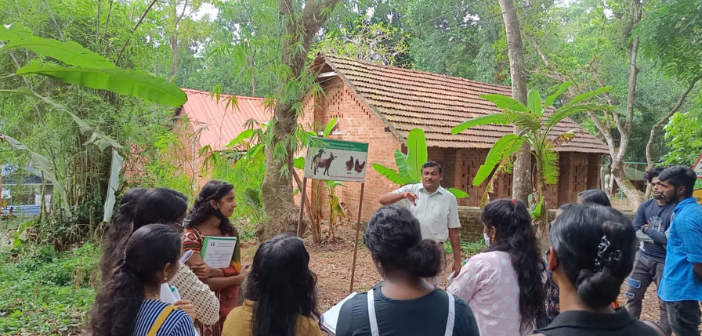“Apprenticeships or internships or any other skill component should not be done at the end of the course. Rather it should be a part of the course and be done in parallel to the theory classes every semester” says Dr. Madhushree Sekher, Dean, TISS-SVE (School of Vocational Education) talking about the importance of the skill component in vocational higher education.
TISS has been taking phenomenal steps in creating awareness and attracting students towards pursuing the B.Voc. courses. Undergraduate courses from TISS like the B.Voc. courses are preparing students with the right industry knowledge and experience and are making them employable with relevant skills.
To learn more about the changes taking place in the TISS SVE model of skill development, in-demand courses, career paths and more, we conversed with Dr. Madhushree Sekher, Dean, TISS-SVE.
Below are a few excerpts from our conversation, you can watch the complete interview on our YouTube channel.
Q: What are the current changes happening with the TISS-SVE hub and scope model?
A: We had to revamp the TISS-SVE hub and spoke model to address a few underlying issues. We revamped the entire structure, where we took over the academics by ourselves. This is right from the admission process, developing the programmes to linking students to the industry partners.
Now, we have skill service providers who identify students who need skill components and guide them to us. Service providers get paid per student. We control and deliver the programme. The service providers help us in identifying students who need skill education and guide them to us. They also identify Skill Knowledge Partners (SKPs) where they can be guided to us to get the training done. At the TISS Hyderabad campus, we have almost 400 students. We guide the students depending on the region they come from and based on the local skill needs.
Q: How do you see NEP 2020 in terms of strengthening higher vocational education?
A: At TISS, students have the opportunity to do internships with industry partners. As the students go forward, they will be sufficiently skilled with 360 hours of industry-based training every semester. The NEP (National Education Policy) 2020 highlights the importance of skill education. Hence, we make sure to create a skilled workforce parallel to taking classes.
Creating a skill component towards the end is not going to help. Doing an internship at the end of the semester is not going to help. We need to have the classes and skill components happening parallelly. This is the implementation part of the NEP programme which was done from our side. Today, under NEP 2020, students are acquiring skills and with our programmes, we are making those skill components effective. Depending upon the location-specific requirement of jobs, we have built these skill components into undergraduate programmes. In our other programmes at TISS, students who are doing non-B. Voc. courses, also take up apprenticeships.
 Q: What are the courses that are in high demand from the industry perspective?
Q: What are the courses that are in high demand from the industry perspective?
A: The courses that are in high demand are courses from the Life Sciences, Hospitality and Healthcare sectors. We are trying to get our healthcare sector courses within the paramedical courses list. The Capital Goods sector is also one of the sectors that are high in demand. There are also premium programmes like Retail sector courses that are linked with the industries and are always in demand.
Q: After the students finish with the orientation, how do they get assigned to the theory and practical components where they have to go to the industry environment?
A: We assign our students according to the region they come from. A significant number is from Kerala where most of them show interest in working in the healthcare sector. Service providers will identify these students and guide them to us. During the admission process, 150 plus teachers are prepared within the school of vocational education. They are identified from different locations or sites. We map generic courses during the weekends and domain-specific classes are taught by the domain experts on the other days.
Q: How do you build capacities in terms of ensuring faculty is trained and updated with the industry requirements?
A: We have trainee programmes and domain experts from the industry which enable us to make the faculty updated. We are also going to have our first domain expert meeting on the 4th and 5th of July.
We look into two main streams while training our trainers –
- Capacity building of faculty to take classes
- Update their current knowledge and make them understand the course content
ToT (Training of Trainers) is also followed where we need to have the faculty be able to communicate with the students in the language they understand or in the local language. We are also planning to create skilled teachers to teach specially-abled children.
Q: Do you wish to share anything else with our audience?
A: Firstly, one should have the patience to understand the vocational programme. Try to see the value behind the vocational programme. As the landscape of higher education is changing in our country, NEP 2020 has opened up multiple doors for universities across the country. Therefore, the young population should grab the opportunities that come their way. From TISS, 6,519 graduates have completed their under graduation. Out of this, 4,400 have been successfully placed. Around 5,500 students either went in for higher education or ventured into entrepreneurship.













